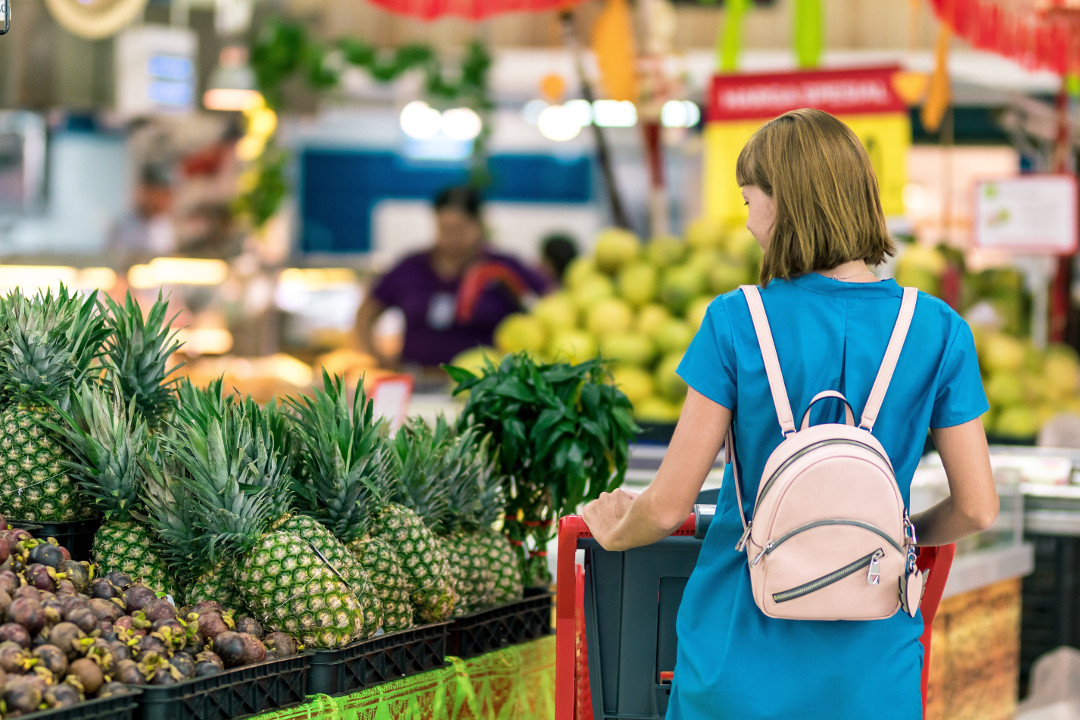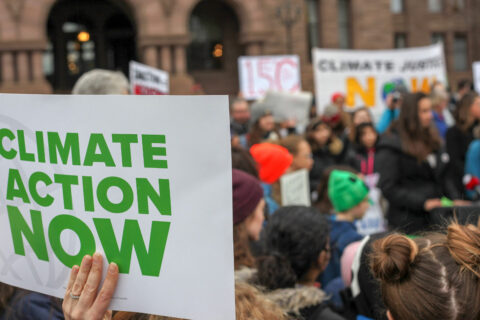The five-day meeting “Smile for Future” in Lausanne ended on Friday. 450 climate activists from all over the world took part and agreed on three core demands. The event ended with a protest march of 2500 people through the city on Lake Geneva. In this article you will learn, among other things, how you can contribute to climate protection by choosing the right food.
Requirements for the future
In order for future generations to be able to live a life worth living on Earth, a rethink is necessary, combined with immediate measures. The following three objectives are to be achieved in accordance with the demands of climate activists:
- Climate justice and equality must be guaranteed
- The global temperature rise remains below 1.5 degrees (compared to the pre-industrial level).
- Climate policy should take into account the best available scientific work
It is unclear to what extent – and above all how quickly – politicians from all over the world will respond to these demands. It is important, however, that each and every individual can make a contribution to climate protection – and immediately.

What I can do for the climate
1. Throw away less food
Between 25 and 30 percent of all food produced ends up in waste. That’s around 2.6 million tonnes of food thrown away every year in Switzerland. The tragedy is that two thirds of these would be avoidable, 43 percent of which are indebted to the food industry and 28 percent to private households. And the climate also suffers, because waste not only contributes significantly to the CO2 balance, monocultures such as soya are also becoming increasingly common and are partly responsible for the fact that tropical forests the size of Sri Lanka disappear every year, which could absorb the harmful carbon dioxide.
The following tricks will help you, as a private person, to be more aware of how to deal with food:
– no hungry shopping: Spontaneous purchases that are not eaten after all can be avoided in this way.
– store properly: Meat, fish, dairy products, cheese, leftovers, eggs, butter and most fruits and vegetables stay fresh in the fridge the longest. Do NOT put in the fridge: Bread, tomatoes, aubergines, avocados, edible oils and most tropical fruits. Potatoes and onions need a dry, dark place. Apples and tomatoes should be stored separately, because they emit ethylene gas and allow other fruits and vegetables to ripen more quickly.
– While food can often still be consumed after the best before date (be sure to look, smell and taste first!), products with an expiration date should be disposed of after the expiration date. For example, crushed raw meat, poultry or pre-cut salads are considered perishable.
2. Reduce meat consumption
According to the Intergovernmental Panel on Climate Change (IPCC), global meat consumption has more than doubled in the last 60 years. This has resulted in ever higher emissions of climate-damaging gases. According to Greenpeace, meat consumption in Switzerland alone would have to be reduced by 70-90 percent by 2050 in order to achieve the climate targets.
The increased consumption of meat was partly responsible for the fact that more and more land was converted at an unprecedented speed for the production of food and feed, which also accelerated the clearing of the rainforest as an important CO2 reservoir. In view of the growing population, the disappearance of fertile soil (see also blog article) and the decline in biodiversity, the question arises as to how mankind will secure its food supply in the future, because today’s way of food production will eventually reach its limits.

3. Buy regional and seasonal food
Although a large variety of fruits and vegetables can be cultivated here in Switzerland itself, food products from all over the world can often be found on the shelves of grocers. Some ready-made salad packages even contain salads from three or more different countries. At the same time, despite the gas they contain, ready-made salads are often contaminated with too many germs, as various tests have shown. But not only the transport by plane from all over the world to Switzerland is extremely damaging for the climate, but also non-seasonal foods cause a considerable CO2 footprint. The greenhouses, whether in Switzerland or abroad, are heated with fossil fuels, so even regionality plays only a minor role.
Conclusion: It is not only important to pay attention to the country of origin, but also to consider the seasonal table. It is best to buy the food directly from the producer at fair prices. Fresh from the tree/field, the foods not only contain more healthy ingredients than their immaturely picked counterparts, they also burden the environment less thanks to short transport routes and purchases during the season.
Regardless of how climate policy develops and, above all, at what speed, each and every one of us can do something good for the environment.








Leave a comment